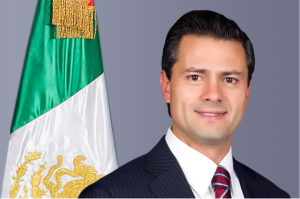The Government of Mexico at the weekend announced its ambitious commitment towards a new international climate change agreement. As part of its Intended Nationally Determined Contribution (INDC) to the United Nations Framework Convention on Climate Change (UNFCCC), Mexico announced its emissions will peak by 2026 and it will adopt an unconditional target to reduce its greenhouse gas emissions by 22% from business as usual.

This development implies that Mexico is the first developing country to submit its INDC, which also includes plans in respect to adaptation and a target to cut black carbon or soot. Mexico is a founding member of the Climate and Clean Air Coalition which was among the many inspiring international cooperative initiatives taken forward at the UN Secretary-General’s Climate Summit in
2014.
After Switzerland, the EU and Norway, Mexico is the fourth party to submit a pledge to the Paris agreement. The International Institute for Sustainable Development (IISD), in a statement on Saturday, congratulated Mexico on its submission, released prior to the March 31st timeline outlined by the UNFCCC.
President Barack Obama and President Enrique Peña Nieto also jointly announced a new high-level bilateral clean energy and climate policy task force to improve coordination on clean electricity, energy and fuel efficiency, climate modelling, and early warning systems. The task force will be led by Secretary Ernest Moniz and Secretary Juan José Guerra Abud.
As two partners of North American Free Trade Agreement (NAFTA), the commitment of the United States and today Mexico to accelerate action to increase low-carbon, clean energy and drive down greenhouse gas emissions is welcome. The USA continues to show leadership together with its bilateral partners, notably China, India and today, Mexico, in accelerating climate action.
The IISD also gave the thumbs-up to Mexico for its commitment, as well as the USA. The USA is expected to announce its INDC soon and had previously outlined a target of emission reductions between 26 to 28 percent. IISD is likewise looking forward to Canada’s finalised INDC, aligning with the other NAFTA partners.
According to the IISD, it is currently working to support INDCs in a number of countries and is firmly committed to supporting low carbon, climate resilient development around the world.
Christiana Figueres, Executive Secretary of the UNFCCC, is encouraging countries to come forward with their INDCs as soon as they are able, underlining their commitment and support towards a successful outcome in Paris. Governments agreed to submit their INDCs in advance of Paris.
Developed countries are expected to do so as soon as possible and bigger developing countries are also likely to submit their INDCs well in advance.
Countries have agreed that there will be no back-tracking in these national climate plans, meaning that the level of ambition to reduce emissions will increase over time. Countries under the UNFCCC have already finalised the negotiating text for the Paris agreement.
The next round of formal negotiations will take place at UNFCCC headquarters in Bonn, Germany, in June.
The NAFTA came into effect on January 1, 1994, creating the largest free trade region in the world, generating economic growth and helping to raise the standard of living for the people of all three member countries – USA, Mexico and Canada.
